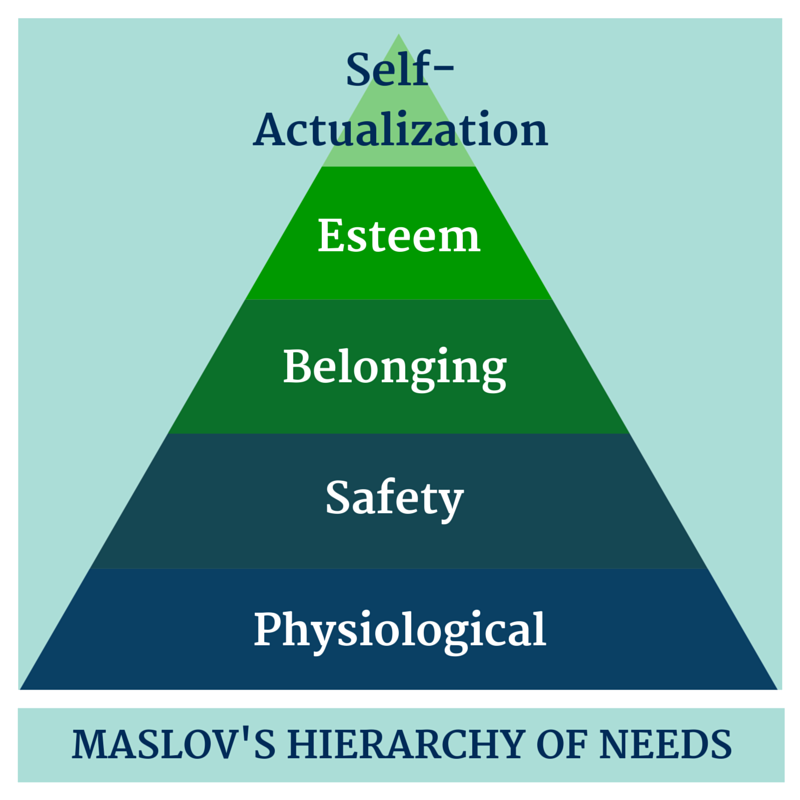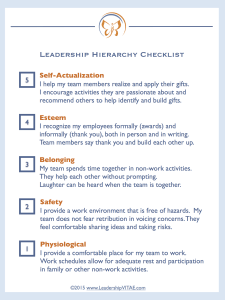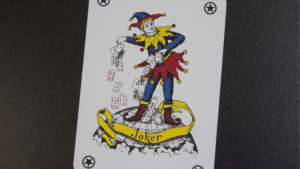
The Lessons that Stay with Us
Graduation time has come and gone again this year. Many friends and family members have returned from attending their children’s graduations from high school or college.
This is the time of year that reminds me to cherish my son’s childhood, as it will be over way too soon. It also reminds me of just how long it’s been since I was in school.
Thinking back to those college days, it’s difficult to recall many learnings that have remained true in the day-to-day of work and life.
I have one such lesson that has stuck with me since my freshman year in college.
I was in the middle of a year away from home for the first time, of discovering boyfriends and parties, of studying and learning what happens when you don’t. I walked away with one lesson that I continue to use and has remained true as my skills and leadership have evolved.
Maslov’s Hierarchy of Needs
I remember the “a-ha” moment when Maslov was introduced in class. The idea that we have different types of needs, and that the foundational ones must be addressed before we can focused on advanced needs, resonated with me in a fundamental way.
- Physiological: Food, shelter, and clothing.
- Safety: Our physical, emotional, mental and financial well-being.
- Love and Belonging: Interpersonal relationships such as friendship and family.
- Esteem: Self-respect and recognition by others.
- Self-Actualization: Recognition and realization of our full potential.
Missing Higher-Level Needs
As a freshman in college, I was worried about so many things and I had so many needs. For the first time, I was ultimately responsible for taking some amount of care for myself.
Were they first world needs? Absolutely. I was riding high on an academic scholarship to George Washington University and from the outside had little to worry about. My foundational needs were taken care of, but my love and belonging needs were not.
It was my first time away from my family. All that was familiar and all that had supported me to that point was gone. I had to manage my own time, make responsible decisions with no drill instructor (or dad) to guide me, and work to pay for books and living expenses.
I did not fare so well.
I was rocking a 4.0 GPA at mid-terms. Then health problems emerged and my grades plummeted to a 1.67. The scholarship was in jeopardy and I was put on a reduced curriculum to get back on track.
After a second semester and a 2.2, the scholarship was gone and I was back home. Back to what was familiar.
Except I wasn’t. I had failed. The investment in my future had been squandered and all future investments would be my responsibility.
Back to the Basics
I had to find work and education on my own from that point forward. It was the best, and most frightening thing I’ve done.
I found both through the Marine Corps, though it wasn’t always easy. I often chose between food and gas money. Rent and car payments.
In those early years, physiological and safety needs (low-cost rent doesn’t equal a good neighborhood) outweighed most else.
Over time, I was able to have a more secure life and get ahead of my bills. However, for years afterwards, I kept a case of ramen noodles in my kitchen. I had to know I’d always have something to eat.
With my foundation secure, and a hedge against going hungry, I was able to focus on love (I got married and started a family), self-esteem (I achieved my own definition of success instead of trying to make up for that early failure) and the life-long journey of self-actualization.
The Hierarchy at Work in Leadership
In more recent years, I’ve referenced Maslov when engaging my team, particularly in communications.
The concept of “Me-We-Us” communications is anchored in Maslov’s theory.
We cannot expect someone to hear our message until we address what it means to them. Until they are reassured there is no threat to physiological or safety needs, it’s difficult to focus on much else.
For example, if we are having a performance conversation and you perceive a threat to your job, that’s a very real physiological and safety threat. The job provides an income to house, clothe and feed you and maybe a family.
Often, what leaders perceive are simple and straight-forward interactions can start a team abuzz. Why? It is human nature to verify or debunk a threat to our foundation.
Leaders can consider Maslov’s hierarchy in all employee engagement. Here are a few examples:
- Physiological: Do I provide a comfortable space for my team? Do working hours provide time away for rest?
- Safety: Do I create a safe environment to share concerns or take risks?
- Love and Belonging: Do team members spent time together when they don’t have to (e.g. lunch)?
- Esteem: Are team members recognized? By me and their peers?
- Self-Actualization: Am I helping my team discover their unique gifts?
The Unicorn of Self-Actualization
While I believe self-actualization is a life-long journey, every one of us – and our teams – can walk it together.
We can discover our gifts and use them to make our lives and the lives of those around us better.
We can be compassionate toward each other, lending a hand as we travel on our respective journeys.
We can address belonging and esteem needs, creating extended families and boosting each other’s confidence.
When teams do these things for each other – they are the unicorn. They are the teams people see and want to be part of. The ones that achieve amazing results with people that are happy to get up every day and contribute.
The Journey Ahead
As a leader, Maslov’s theory has guided me toward one goal in all my organizational development and transformation work. I aspire to create an environment where people feel safe, a sense of belonging, and value in their contributions. To create the unicorn.
I learned more in that first year of college than in all the years and degrees that followed. I eventually got those pieces of paper, but the lessons that led up to them are what hold, not calculus or physics.
To all those recent graduates, I wish for you a lesson that holds. One that will guide you as you make the journey ahead. For a time, you’ll be addressing fundamental needs. Hopefully you’ll get to those higher needs sooner than later.
Just remember, it’s the journey that makes us who we are. Even the hard parts. Especially the hard parts.
Are you providing to your team’s hierarchy of needs? Not sure? Click here to download a Leadership Hierarchy checklist. It includes 5 critical questions we should be asking ourselves regularly to ensure we’re meeting the needs of our people.
I’d appreciate any feedback you have so that I can continue to provide valuable checklists and other tools for your leadership growth and development. Also, if you find it useful, please share it with others. Thank you!











One Response